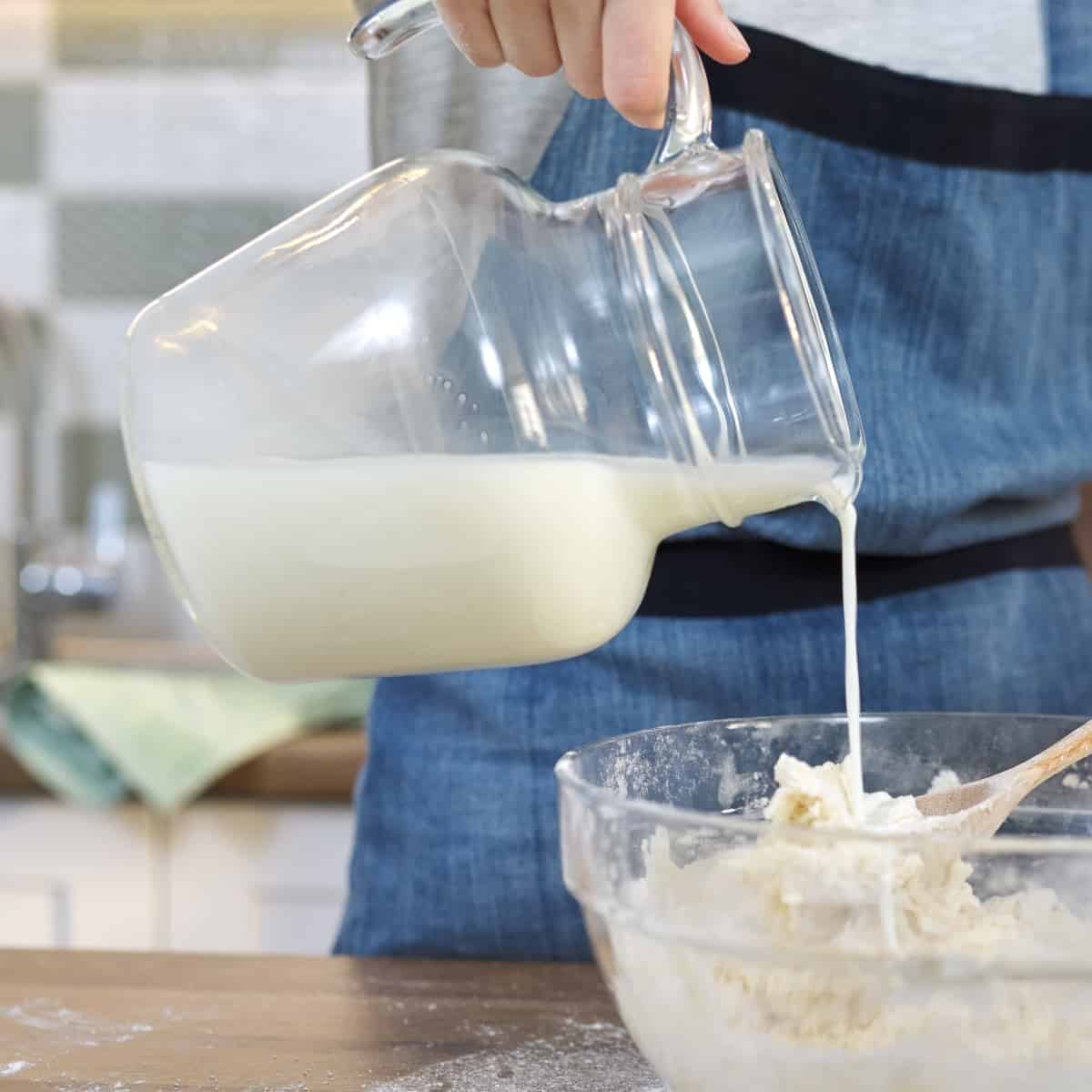
Do you need a substitute for milk in baking because you suddenly realize you have expired whole milk or have run out of it? Maybe you want to try something new or you're serving someone with dairy allergies and lactose intolerance.
Don't worry; I have got you covered! I have listed my favorite dairy-based and vegan, dairy-free alternatives to regular or cow's milk.
Jump to:
8 Best Substitutes for Regular Milk in Baking
I have experimented with lots of possible milk alternatives for baking, but the following ingredients worked well in most recipes:
1. Evaporated Milk
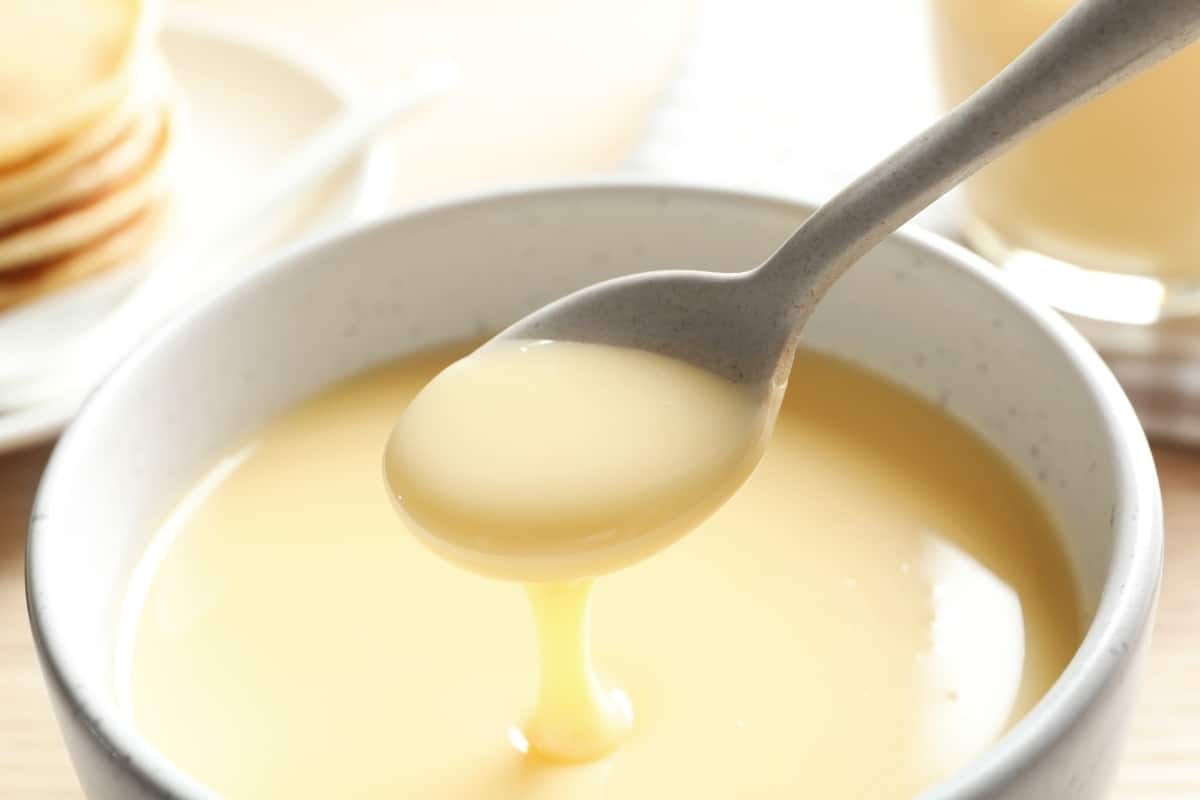
The first ingredient to search for in your pantry when you're in need of a substitute for milk in baking is another type of milk, like evaporated milk. Because of its long shelf life, you most likely have it in your pantry or leftover evaporated milk in your fridge.
As a type of milk containing a lower amount of water, I suggest diluting your evaporated milk with an equal amount of water. This adjustment not only brings the consistency of your evaporated milk closer to that of regular milk but also allows for greater versatility – you can also use a substitute for evaporated milk.
If that's not enough, evaporated milk is usually sweeter than liquid whole milk and has a caramelized taste. The water will help tone down both, giving your baked goods the same amount of sweetness, creaminess, and moistness.
To use diluted evaporated milk as a milk substitute for baking, follow a 1:1 substitution. To be precise, combine one-half cup of evaporated milk and one-half cup of water to replace one cup of milk in your recipe.
Best for just about anything.
2. Powdered Milk
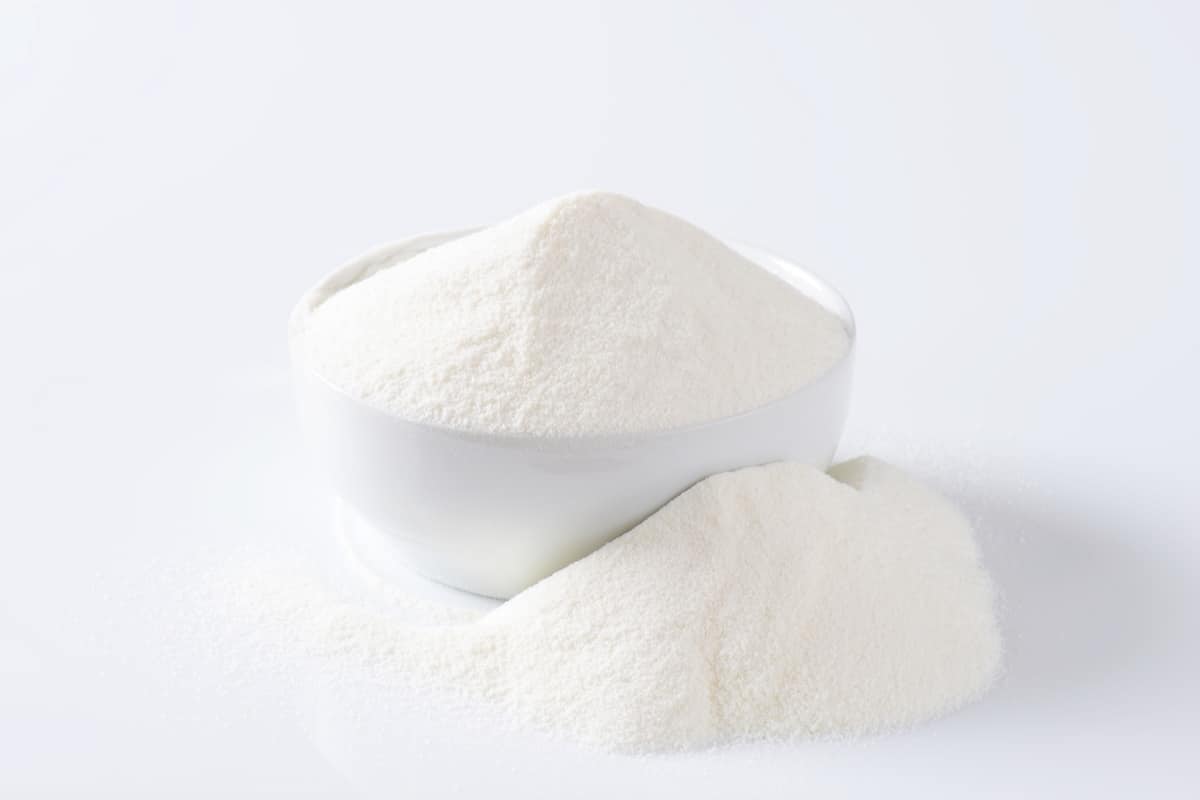
Another type of milk that you can easily use to replace milk in your baking recipes is powdered milk. Simply read the label and dilute the milk with the required amount of water to give it the same consistency as liquid milk.
Then, add the same amount of the dissolved powdered milk as what the recipe calls for liquid milk.
I also suggest tasting the powdered milk before adding it to your recipe to check if it's sweeter than the milk you usually use in your baked goods. If that's the case, I suggest reducing the amount of sugar or any sweetener listed in your recipe.
Best for just about anything.
3. Condensed Milk
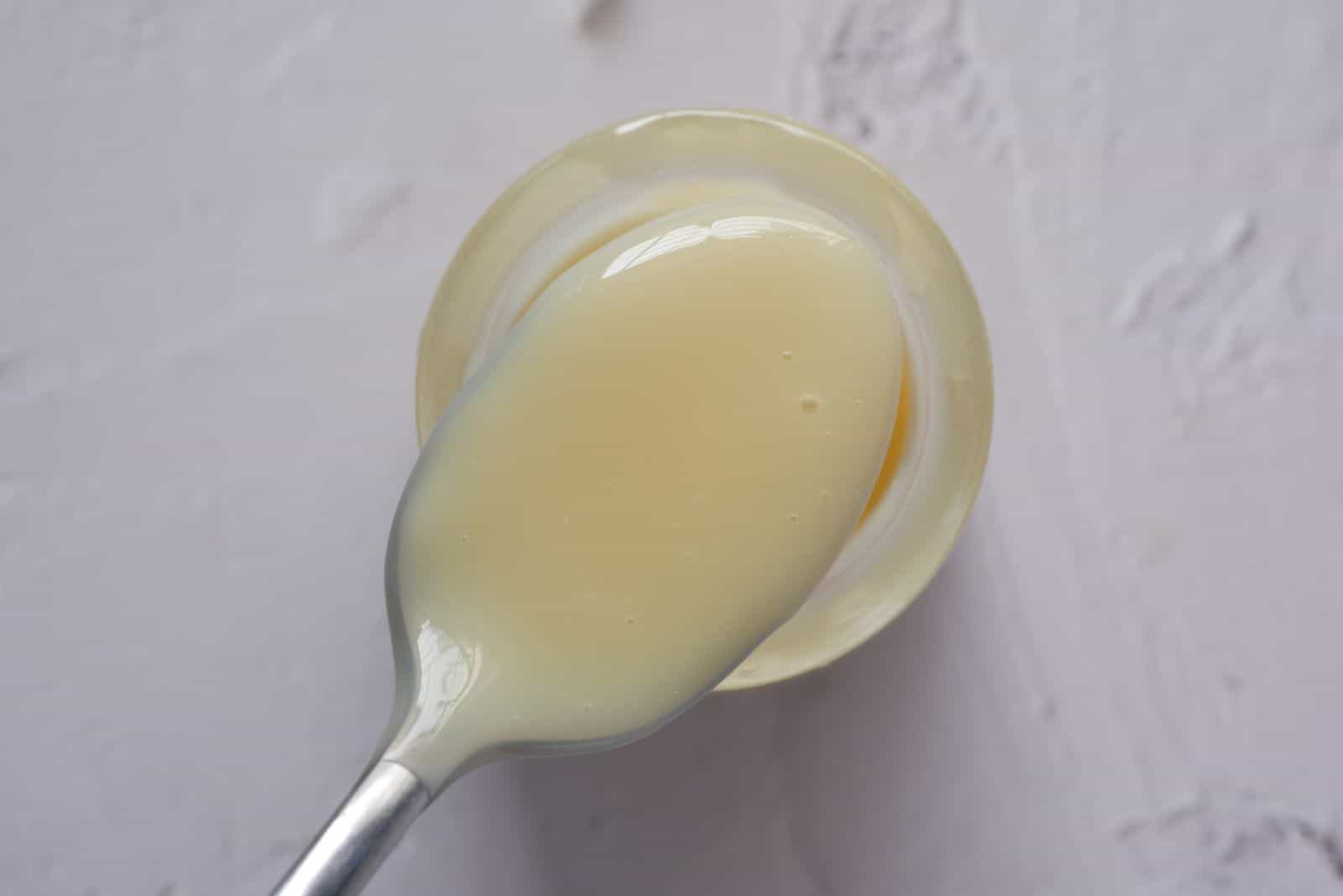
Another one of the easily accessible milk alternatives that most of you surely have in your pantry or fridge is condensed milk. You have two options, and I highly suggest opting for unsweetened condensed milk, although sweetened condensed milk is also perfectly fine.
Whichever you choose, like evaporated milk, condensed milk has lower water content but a thicker consistency, so you also need to dilute it with water.
However, the amount of water you need to add isn't the same across the board. You may need to combine equal amounts of water and condensed milk or three parts water and one part condensed milk, depending on how thin you want the resulting milk to be.
In terms of replacing milk with diluted condensed milk, follow a 1:1 substitution ratio. If you're using sweetened condensed milk, make sure you reduce the amount of sugar or any sweetener listed in your baking recipe. Doing so ensures you won't serve your guests with overly sweet baked goods.
Best for biscuits and cookies.
4. Half-and-Half Cream
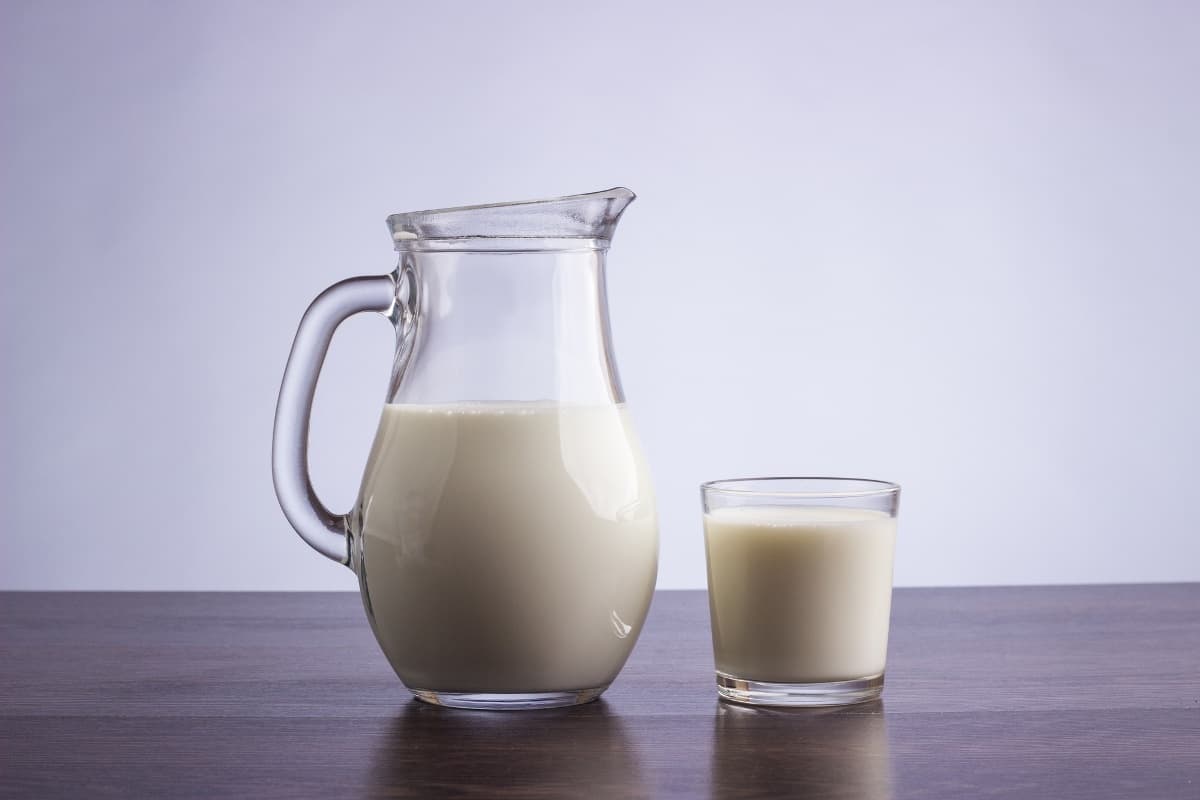
Add the same amount of half-and-half cream to your recipes to give your baked goods their much-needed milky taste and the right amount of moistness, color, and protein. This ingredient that some of us love adding to our coffee also brings the same richness to the table when used in baking.
It's also one of the best milk substitutes in baking if the amount of milk you have isn't enough for the batch of baked goodies you need to serve and you have light cream or heavy cream available in your pantry or fridge. Simply mix equal amounts of light cream or heavy cream and regular milk, and you already have half-and-half cream!
Best for just about anything.
Related: The Half and Half Substitute List You Can Rely On
5. Heavy Cream
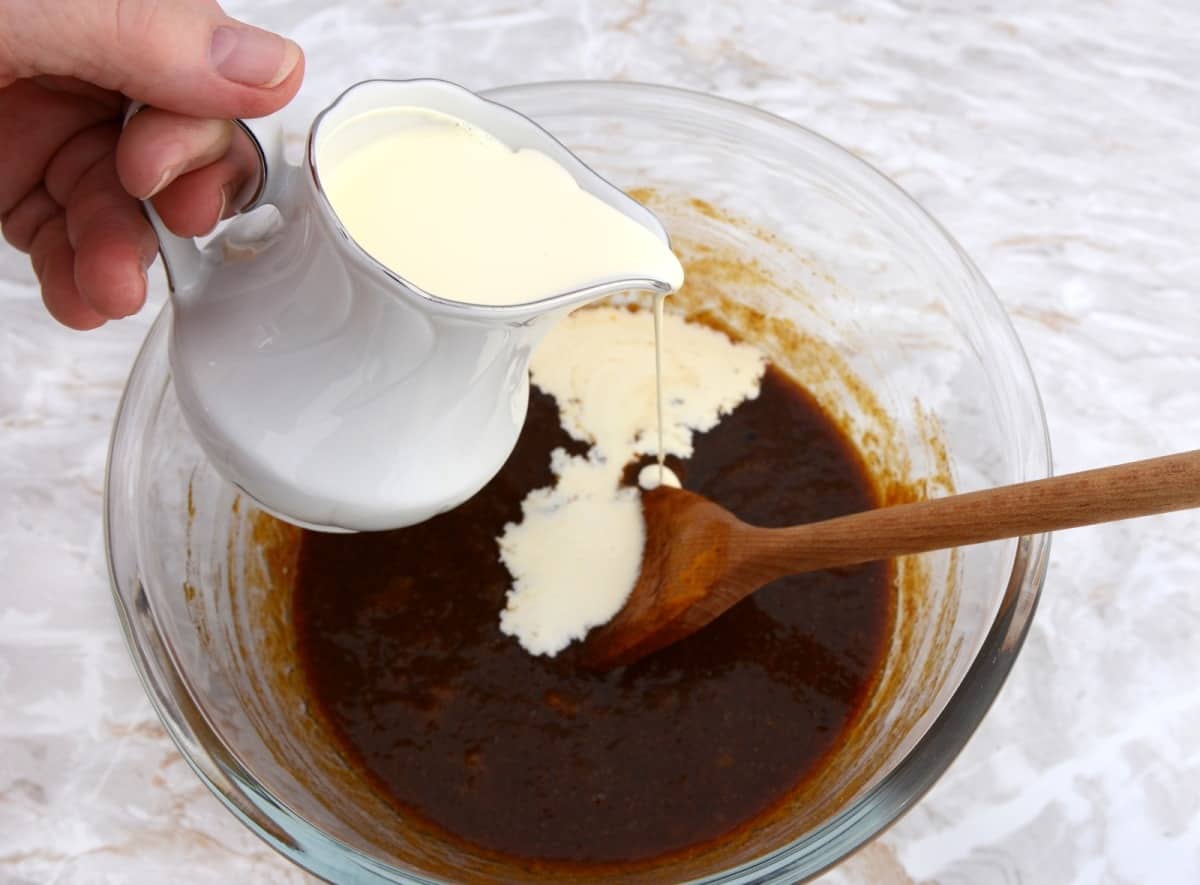
Now, if you don't have half-and-half or can't make one because the only thing you have is heavy cream, then go ahead and use it to replace milk in your baking recipes. You will need to dilute it with water, following a 1:1 ratio, to give it a consistency as close to milk as possible to avoid altering the texture of your baked goods.
Once you have diluted your heavy cream, add the same amount the cream as what your baking recipe calls for milk.
Best for cakes and pies.
Related: Best Vegan Heavy Cream Substitutes for Delicious Dishes
6. Plain Yogurt
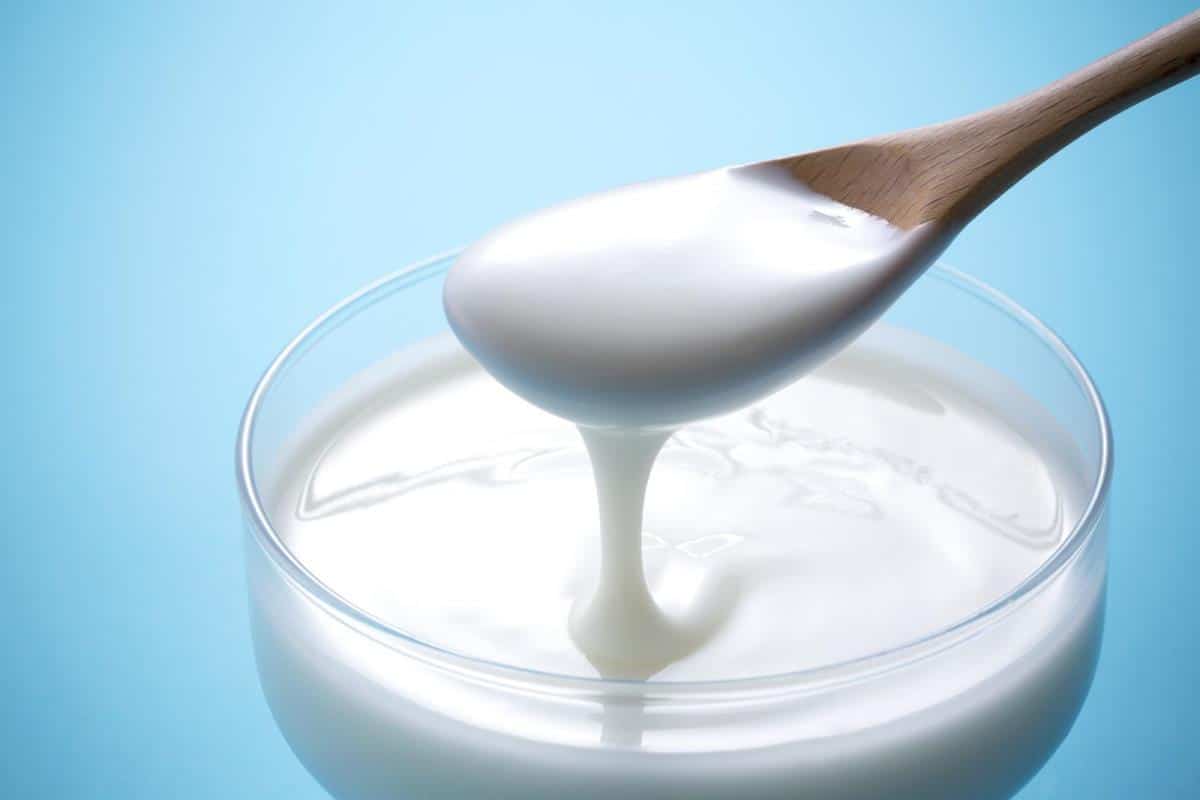
Another everyday kitchen staple that I love using as a baking substitute for milk is unflavored regular yogurt. Not only is it a healthier option, but it also adds the right amount of moisture to your baked goods.
In terms of texture, it will depend on whether or not you thin out your plain yogurt with water. For cookie dough and crust recipes, use thinned-out plain yogurt. Meanwhile, thin out your yogurt with the same amount of water for other baking recipes.
Plain yogurt is also known for its distinct tangy flavor, which can affect the overall flavor of your baked treats. But fret not; if there's too much tanginess in your batter or dough, you can add a drop of vanilla extract to help reduce the tangy flavor.
While I don't recommend using Greek yogurt because of its high fat content and thicker consistency, go ahead and use it when you're in a pinch. Just add more water; say, combine three parts of water with one part of Greek yogurt.
Whether you use watered-down or concentrated regular yogurt or watered-down Greek yogurt, add the same amount of it as what the recipe calls for regular milk.
That said, what I love most about yogurt is that there are also non-dairy yogurt options, allowing you to bake goodies for your friends and family members with special dietary restrictions.
Now, what if what you have is flavored yogurt? Well, go ahead and use it as long as its flavor doesn't throw off your baked goodie's balance of flavor. Or, make sure that its flavor meshes well with the other ingredients.
Best for just about anything.
7. Sour Cream
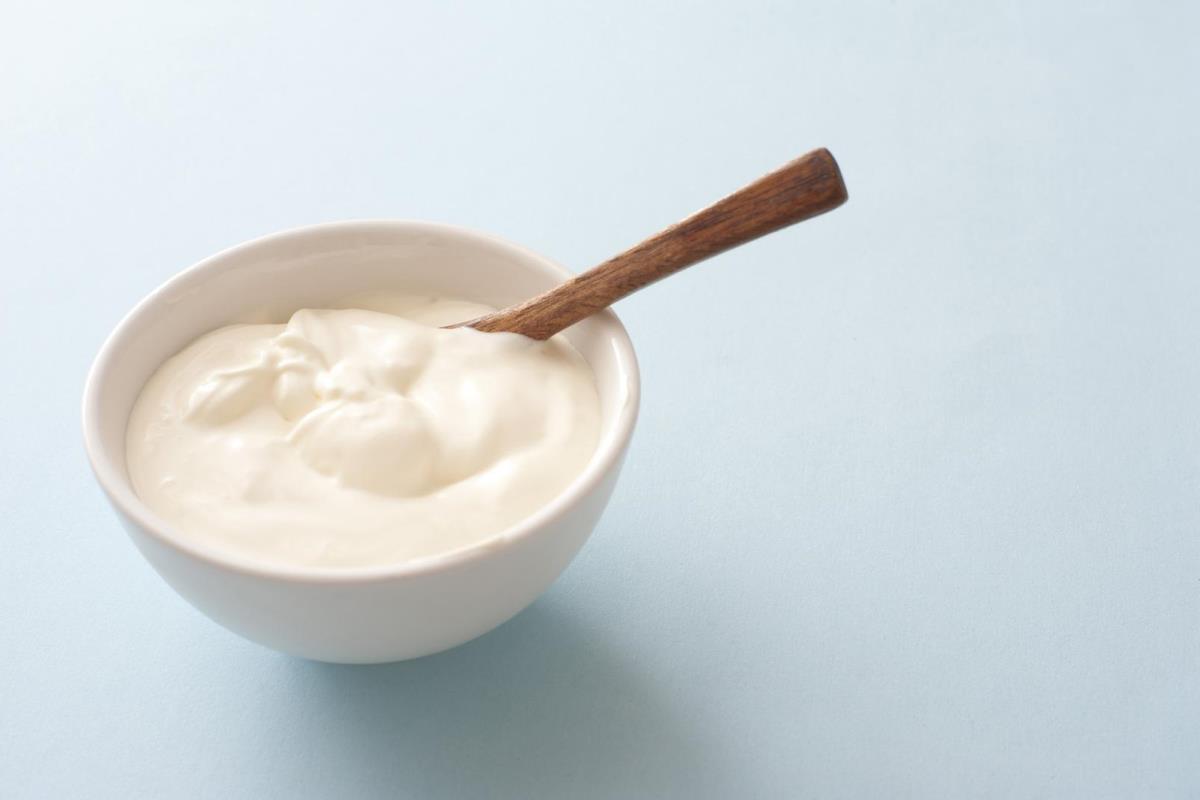
Another good substitute for milk in baking that you most likely have in your pantry or fridge is sour cream. While it has a neutral flavor, sour cream works similarly as plain yogurt when it comes to your baked goods' texture and moistness.
Needless to say, you can use it in its concentrated form or thin it out with water, depending on what you're baking, and follow a 1:1 ratio when replacing milk in your recipes with sour cream.
Like half-and-half, sour cream is a milk substitute for baking you can make at home when you don't have enough milk left to prepare the right amount of baked goodies for your guests. To make half a cup of sour cream, do the following:
- Add half a teaspoon of freshly squeezed lemon juice or distilled white vinegar to half a cup of heavy cream.
- Whisk the ingredients together.
- Let it sit at room temperature for 10 minutes.
- Add ⅛ cup of your dairy milk or non-dairy milk.
- Whisk to blend the ingredients well.
Best for just about anything.
Related: What Can I Substitute for Sour Cream in Baking? Here Are 12 Top Recommendations
8. Water and Melted Butter
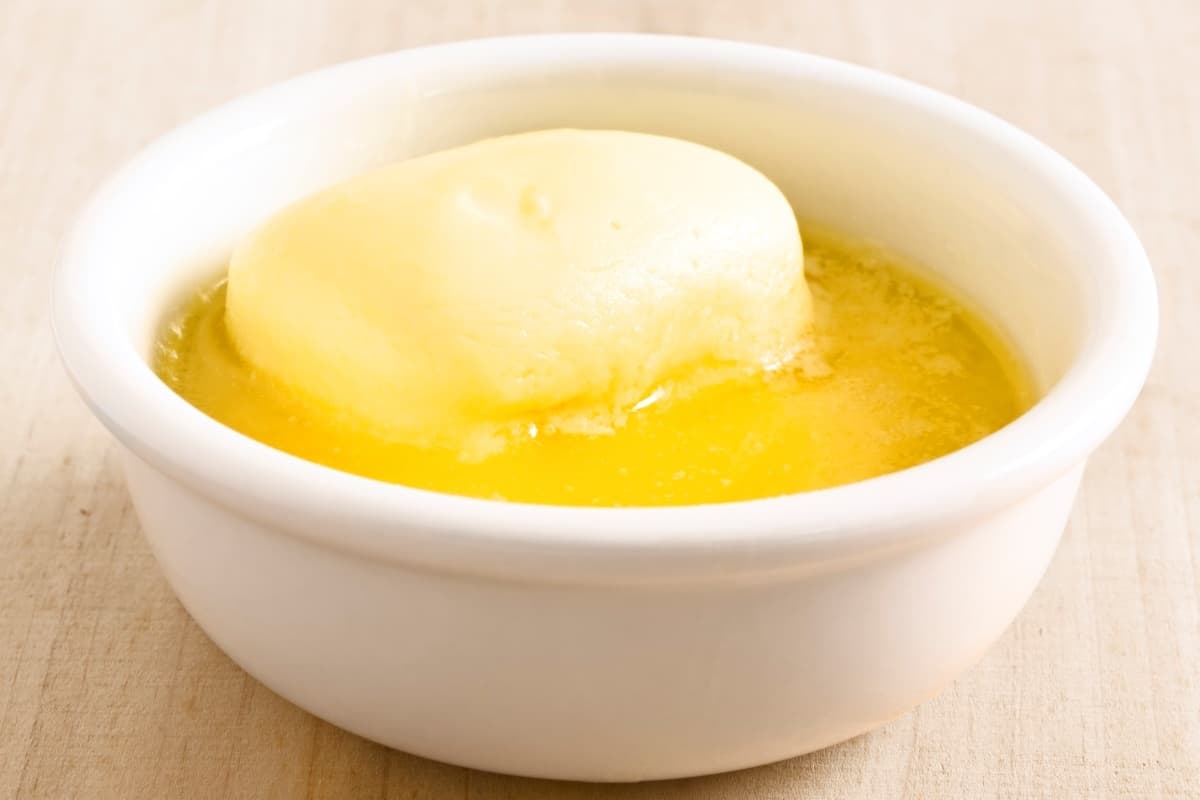
Combining water and melted butter is one of the easy milk substitutes in baking when you don't have any of the ingredients I listed above. After all, you surely have butter in your fridge if you bake and cook regularly.
The water will add the moisture your recipe needs, while the butter will provide the fat content to ensure you don't have a crumbly dough.
To make this good substitute for milk in baking, simply add one tablespoon of melted butter to every cup of water. Then, use it to replace one cup of milk in your recipe.
Best for pies and cookies.
2 Vegan and Non-Dairy Substitutes for Milk in Baking
If you're serving one or more lactose-intolerant guests, the following dairy-free milk substitutes for baking will surely save your day:
1. Plant-Based Milk
Bakers and cooks these days are lucky enough because they have several options for dairy-free, plant-based milk products. If you're overwhelmed with the number of options, here are my favorite non-dairy milk substitutes for baking:
Soy Milk
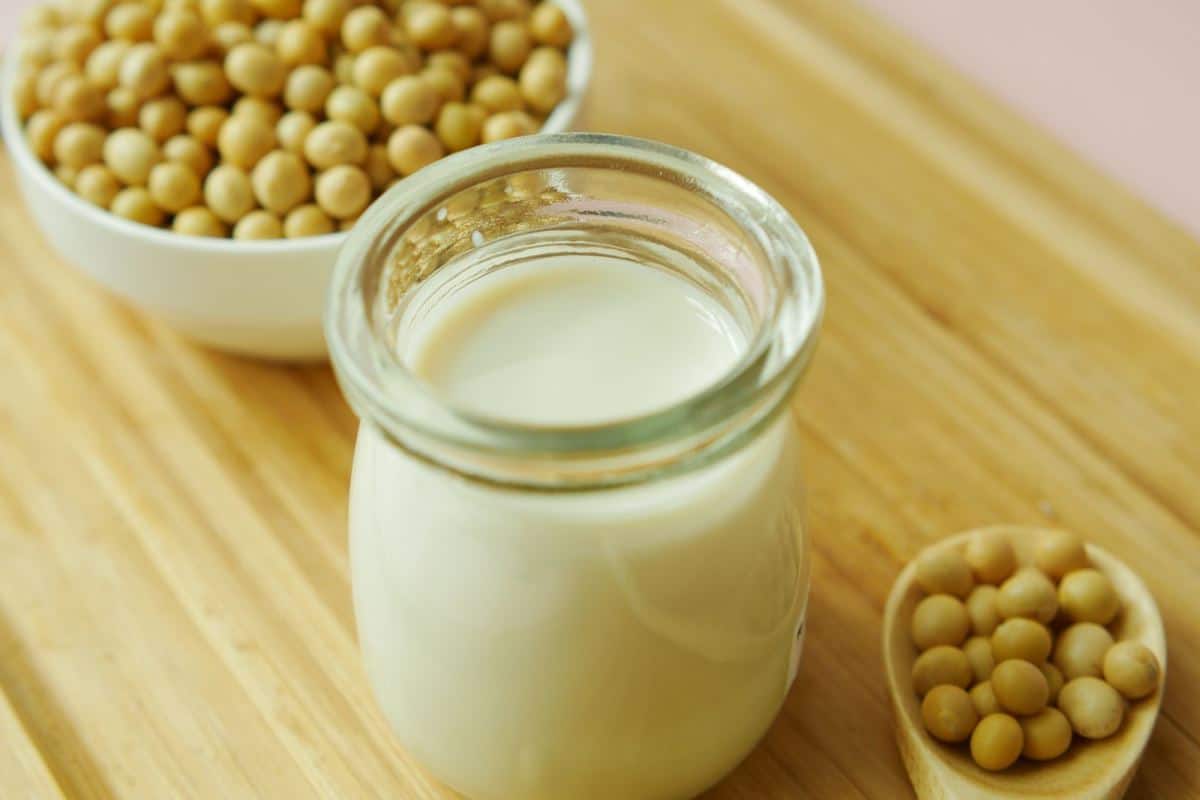
I prefer soy milk over other non-dairy milks because it tastes the closest to regular milk. Its consistency is also thicker than most dairy-free milk products. It's why I add the same amount of soy milk as what the recipe lists for regular milk.
One thing you have to keep in mind before opting for soy milk is to ensure you have no guests with soy allergies.
Best for just about anything.
Oat Milk
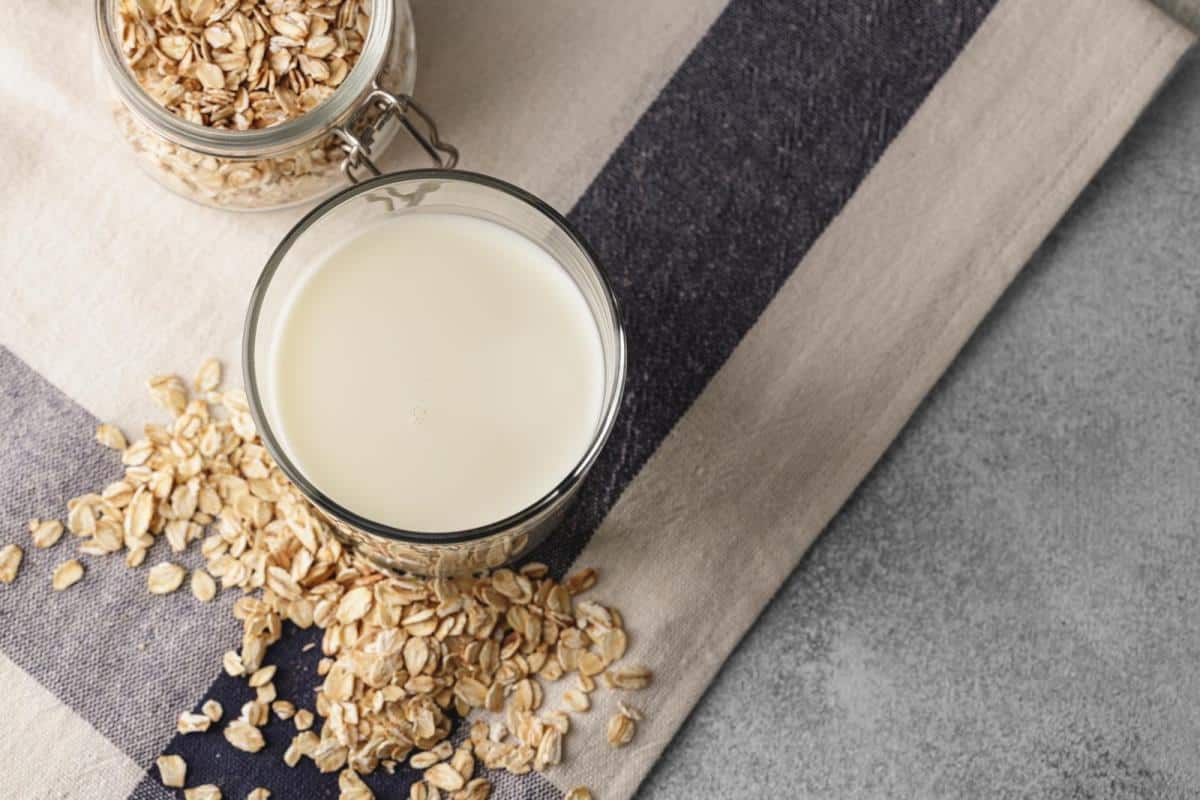
If you have a guest with a soy allergy or don't have soy milk, oat milk is your second-best milk substitute because it has a thick consistency. While it has a distinct nutty flavor, it won’t overpower most ingredients; in fact, the nutty taste can complement their flavors.
To substitute regular milk with oat milk, add half the amount of what's required in your recipe for milk to ensure you have a final product with the same texture.
Best for cookies and crusts.
Almond Milk
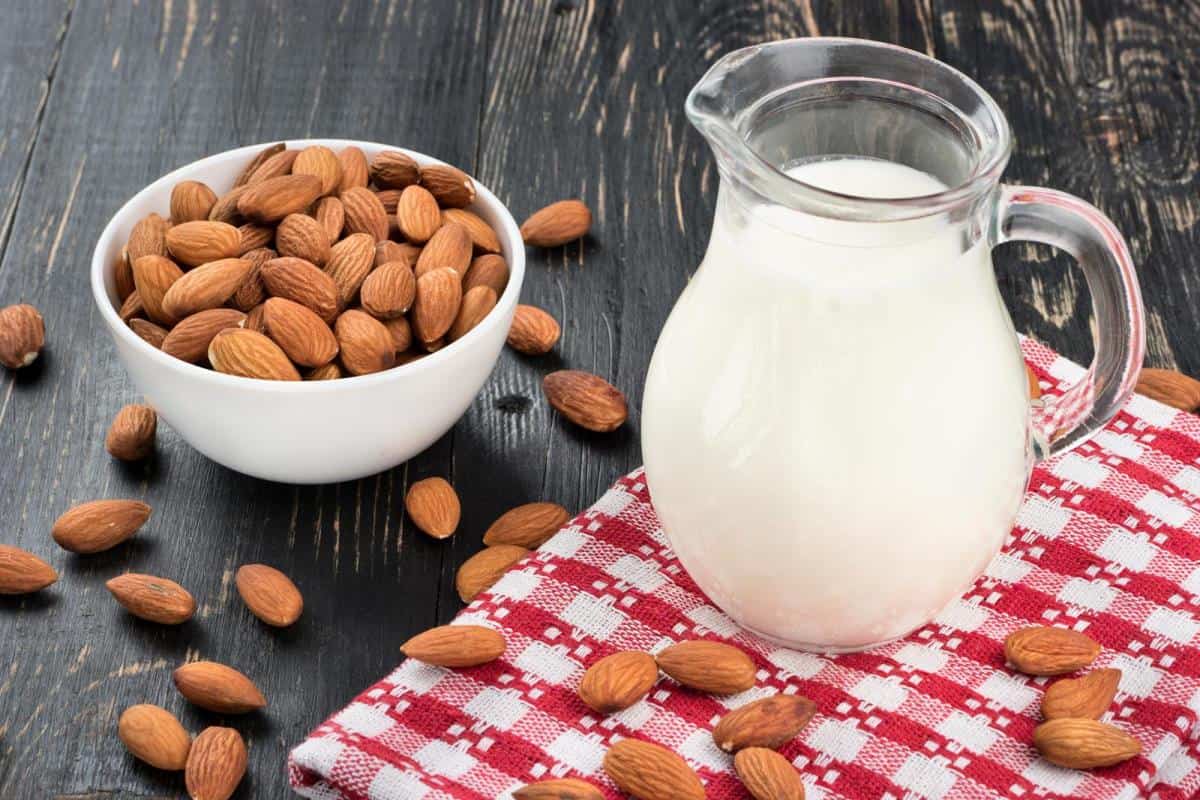
While there are other nut milk products that you can use as a dairy-free alternative to regular milk, I love almond milk because it has a mild flavor compared to cashew and pistachio milk. Simply add the same amount of almond milk as what the recipe requires for regular milk.
However, keep in mind that almond milk has a stronger flavor than soy milk and oat milk. Hence, make sure the almond flavor complements the flavor of the rest of the ingredients. Also, ensure that none of your guests have nut allergies.
Best for almond-flavored and nut-flavored baked goodies.
Related: Healthy and Tasty Almond Butter Substitutes for Your Recipes
Canned Coconut Milk
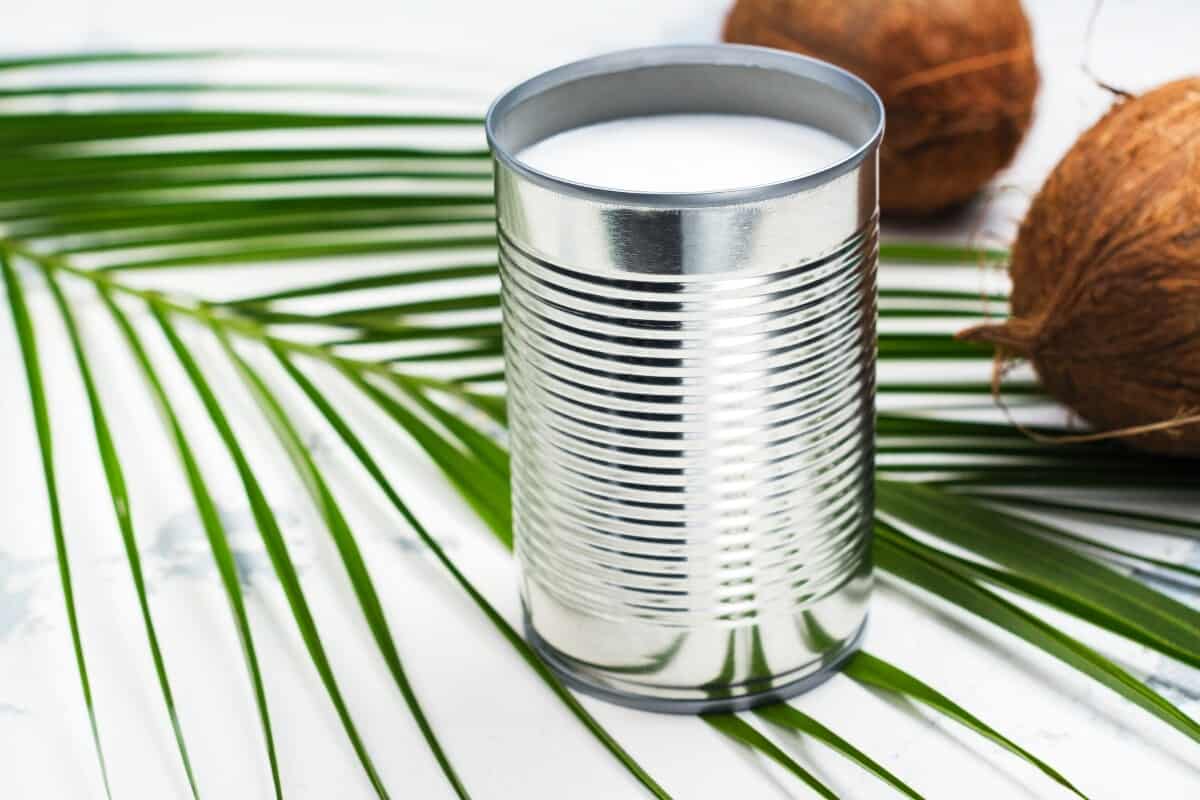
Do you want to add a tropical or coconut flavor to your baked treats? Perhaps you want to improve their texture. Then, canned coconut milk is the best substitute for milk in baking!
When replacing milk with canned coconut milk, simply follow a 1:1 ratio.
Best for just about anything.
Rice Milk
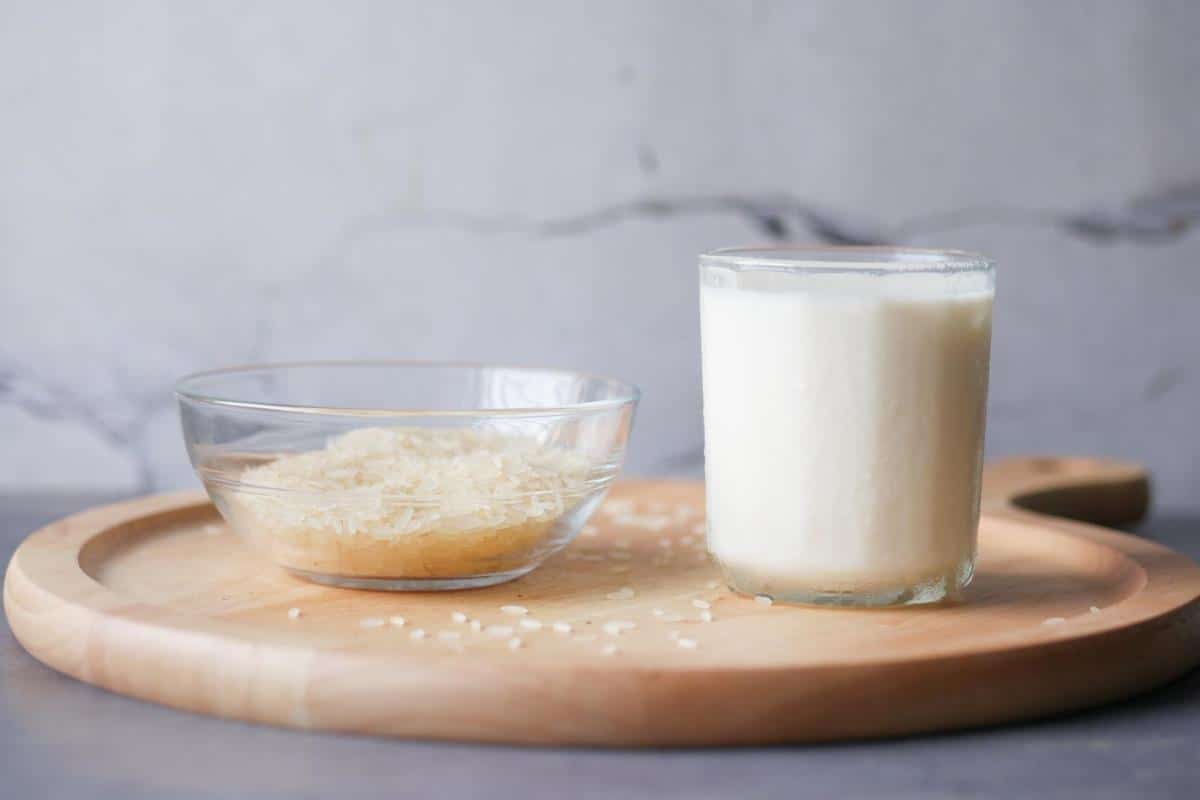
Another healthy, vegan-friendly, dairy-free substitute for milk in baking that you can easily grab at your local grocery store is rice milk. Like with most non-dairy milk products in my list, simply add the same amount of what the recipe requires for milk when using rice milk in your recipes.
Best for just about anything.
Water and Melted Plant-Based Butter
With this dairy-free, vegan baking substitute for milk, the tips and techniques remain the same as mentioned above (using water and melted butter). Just replace regular butter with any plant-based butter available in your fridge or at the grocery store, or opt for any other suitable butter substitute for baking.
Best for vegan cookies and pies.
Replacing Cow's Milk in Your Baking Recipes
Whether you're replacing regular cow's milk or you need to bake treats that are free from dairy products, my list of substitutes will come in handy. They will add the delicate texture, creaminess, and moistness they require without altering the overall balance of flavor.
You May Also Like:
Best Sweetened Condensed Milk Substitutes
10 Best Whole Milk Substitutes
9 Dairy and Non-Dairy Substitutes for Evaporated Milk
Recipe
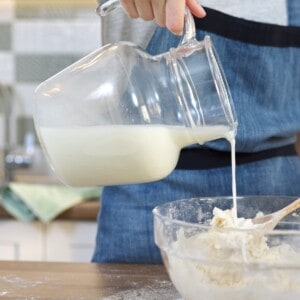
Best Substitute for Milk in Baking
Ingredients
- 1 cup diluted evaporated milk
- 1 cup soy milk
- 1 cup rice milk
Instructions
Option 1
- If your guests have no dietary restrictions and your recipe requires one cup of milk, mix half a cup of evaporated milk and half a cup of water, mix, and add it to your recipe.
Option 2
- For vegan and dairy-free baking, replace one cup of whole milk with one cup of soy milk.
Option 3
- For vegan, dairy-free, and soy-free baking, replace every cup of milk in your recipe with a cup of rice milk.
Notes
You can find the video in the post above. If you don't see a video, please check your browser settings.


Leave a Reply